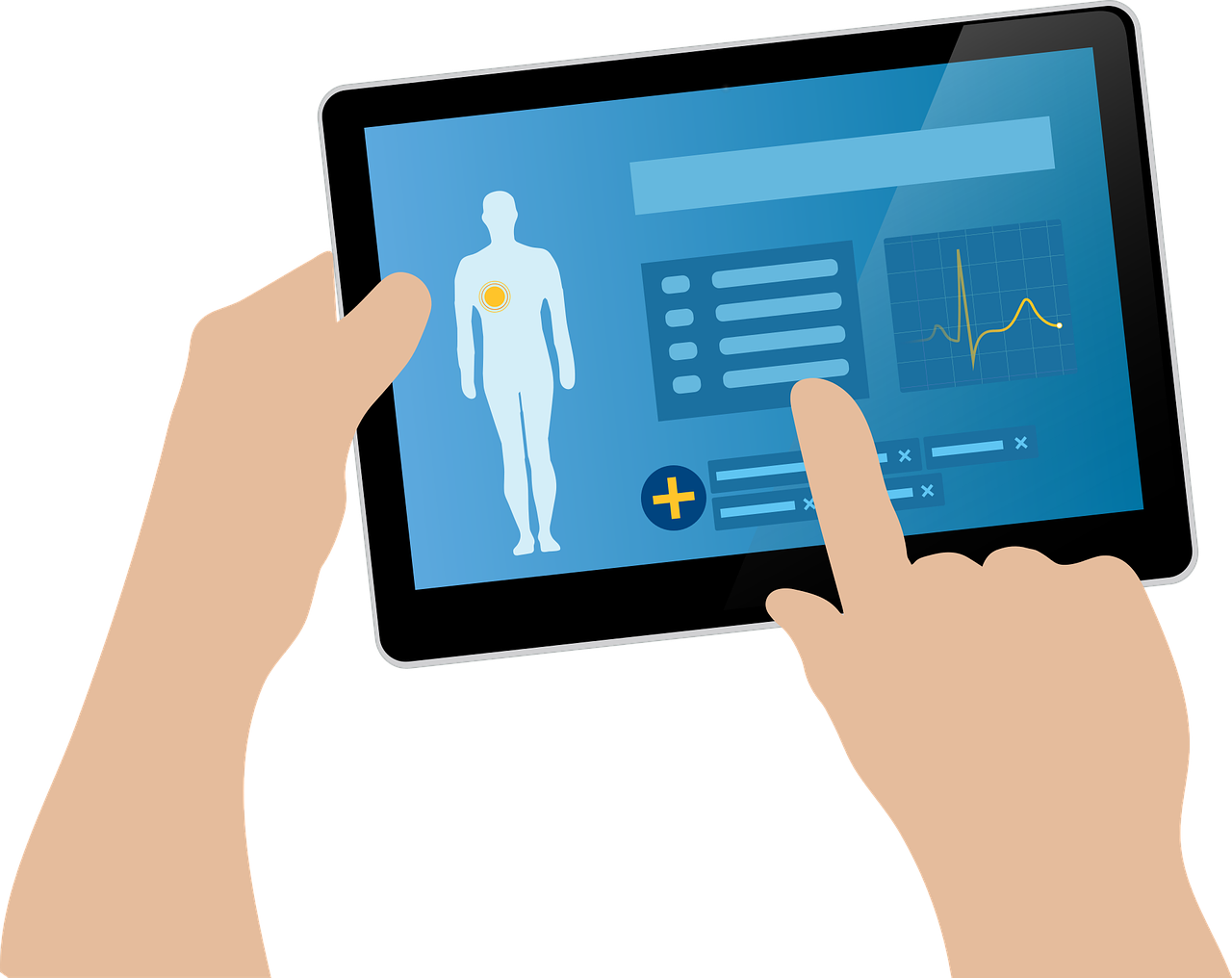In the recent past, the hike in the number of healthcare technology apps has been massive. Needless to say that digital transformation in the healthcare industry is a reality now. Though started on a slow note, the industry is utilizing the web and the mobile space to the fullest. As a result, healthcare organizations are showing interest in revamping their existing infrastructure to turn it into more efficient and result-driven.
Healthcare companies of varying sizes and specialties are increasingly adopting IoT apps and machine learning technology to create more opportunities for app developers. From tracking health symptoms to booking physician’s appointment and refilling prescriptions, machine learning and apps are helping patients and facility centers. Considering the present healthcare apps demand and the potential market scope, we can conclude that 2019 will be huge for healthcare app development. In this year, the industry will surely witness further advancements in the application development market. Here is a list of six top trends that will support the claim:

Advances in Telehealth with Better Healthcare App Development
In today’s fast moving world, people struggle to balance personal and professional life. Choosing which one is priority, health or wealth, is a topic of debate and will certainly be in the future as well. However, as health issues and diseases keep on rising, people are forced to give their well-being importance than before. Thanks to technological advances like mobile apps and gadgets that extend support to individuals in taking control of their health.
As people become proactive in monitoring their health stats, app developers get encouragement to come up with more advanced health apps. It has been a common practice for so long that we visit the doctor only when things become serious and goes out of control. However, with apps like Google Fit, MyFitnessPal, and others, people can check their health status without on a daily basis. From heartbeat rate to calories, fat, and high blood pressure, everything can be tracked and monitored using digital health technology. With further innovation, the demand for personalized medical apps is increasing. App developers are revolutionizing the Telehealth market with path-breaking achievements. Hence, in 2019, the trend to develop more healthcare apps to meet the needs of proactive individuals is likely to prevail.
More IoT Healthcare Apps to Meet the Demand
The potentiality of the internet of things (IoT) for the healthcare industry is enormous. From real-time monitoring to medical device integration, and use of smart sensors, IoT has helped improve patient care and the delivery system. With numerous areas of successful application, IoT is the favorite of every individual today.
Tech giants like Google, Apple, Intel, Amazon, and others are making significant developments in the field of connected IoT devices. Particularly in the healthcare segment, the introduction of connected wearables like Fitbit has left a positive impact on the overall growth of health systems.
Today, people are taking charge of their health. Using apps and wearables, they can monitor calories, heartbeat, sleep duration, etc. in real-time. All this is possible because of the advent of IoT devices and apps.
To track health reports, people are using a smart medical device connected to a mobile app. Through the app, people can check on their health stats and connect with the doctor within the app if they notice any need for immediate help. The health data that these apps collect and store are saved in the Cloud for easy sharing with a physician or doctor. As a result of which, physicians can stay in constant touch with the patient via a real-time tracking system that can notify them of emergencies.
With the increase in popularity of connected healthcare wearables like health watches, fitness bands, etc. app developers will find more opportunities to develop health apps that can regulate connected devices. With people unleashing the many benefits of IoT in diagnosis, treatment, and maintenance of patient health, the focus on developing healthcare IoT apps is likely to grow.
Growing Importance of Patient Generated Data
In today’s digital world, getting access to patient data is no longer difficult. With the rise in digital technology and the introduction of mHealth apps, wearables and in-home medical devices, an abundance of consumer health data are being generated. This data is later used by healthcare providers to deliver personalized services, offer remote care to patients and improve efficiency at all levels. Healthcare service and care providers need patient insights to serve them better. It provides them actionable insights using which they can better interact with patients and draw meaningful conclusions.
Considering the significance of patient-generated data for medical providers, the trend to generate more data further in 2019 is likely to continue. As data helps to offer better care, now more emphasis will be given to developing healthcare apps that can fetch consumer health data. In areas like diabetes, stroke, cholesterol, depression, and cancer, patient data can felicitate further developments with more data getting collected with dedicated apps built in the coming days.
Need for Improved Operational Efficiency to Boost App Development
Healthcare app development can boost operational efficiency of medical establishments manifold. With machine learning apps in use, hospitals and medical professionals can save time and better manage operations. From coordinating patient care to maintaining patient records, automation has taken care of a wide range of works, ensuring faster delivery of care. At all levels, development of healthcare apps helps physicians in meaningful ways. Today’s apps have advanced and efficient built-in features that take care of operations in every department from surgery to pre-natal care.
Earlier, medical foundations had to take operations management into their hands but thanks to automation and application development, their task is automated according to specific needs. Now, physicians use hand-held applications like ACT.md that they can easily carry in their pockets. It helps professionals to estimate case length and efficiently manage inter-operability through the app. Connecting in-house nurses to emergency doctors, apps today ensures uniform patient-flow by keeping medical professionals connected via a single application. This trend is surely going to continue in 2019 as app developers are keen to help all the care members for a secured health environment.
Replacing Paper Work with EHR
Even today, there are healthcare organizations who still believes and practices paperwork. From manually filling up admission forms to storing patient data in piles of files, healthcare establishments still lag compared to other industries. Security concerns and lack of knowledge on how to use technology are some of the reasons behind this. While the number of electronic health record (EHR) adoption has increased considerably, change is not complete yet. However, the urgency to keep pace with the transforming healthcare practices, medical professionals and providers are increasingly starting to embrace IoT technology and use of digital applications.
The trend has changed, and it is likely to be the same even in 2019. Medical organizations are trusting technology and are showing their positive inclination towards the adoption of digital record-keeping systems and along with health apps and connected devices. Now, more and more organizations are welcoming healthcare app developers into their team. They are trusting on application developers for creating an easy-to-use, reliable web and mobile apps that can help both patients and practitioners.
The market for EHR is growing by 6% every year. Even leading names like Apple, integrating consumer health data into their medical apps to provide iPhone users with a single platform to view their medical records. Keeping all these developments in mind, we can hope that the coming days will surpass past expectations.
App Developers to Help Tackle Workforce Shortage
It is a well-known fact now that the US healthcare industry is currently witnessing a shortage of nurses, health aides, and doctors. To address the increasing demand of the aging population, the US need to hire 2.3 million healthcare workers by 2025, say reports. The numbers are quite alarming for a global leader like America.
However, the situation is partially met by application developers who are creating more apps for non-profit and private organizations. Not only these apps are helping to reach potential candidates for vacancies in healthcare but are also saving a lot of time. It is projected that app development in 2019 is likely to impact the work efficiency of physicians and clinicians as well as impact the care quality patients receive. Also, app developers are helping physicians even to perform specific tasks from home, streamlining their shift schedule.
Author Bio:
My name is Lauren Williams, currently working as a senior marketing manager at MedicoReach. My hobbies include watching football, basketball and free time writer. I love traveling and food geek — this all about me in simple words.








